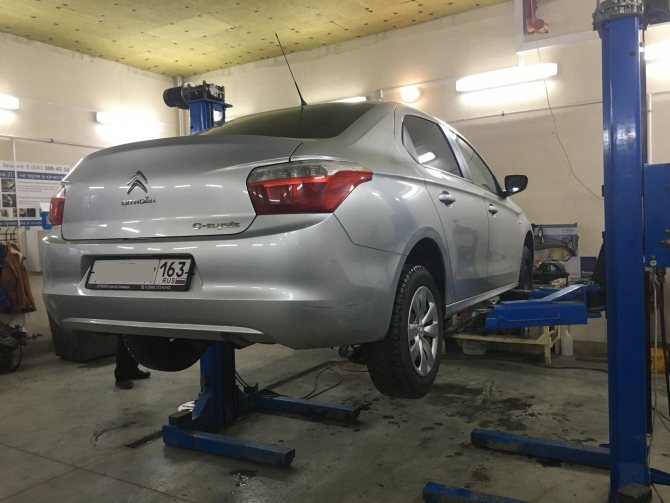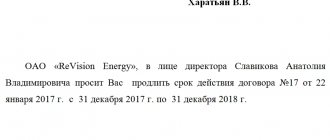Home / Complaints, courts, consumer rights / Consumer rights
Back
Published: 10/31/2018
Reading time: 5 min
1
777
To understand the issue of the warranty period of auto parts, the consumer needs to familiarize himself with Federal Law No. 2300-1 “On the Protection of Consumer Rights,” namely, paragraph 6 of Article 5. It states that the manufacturer or seller can install or service warranty period.
- Warranty period for auto parts Warranty conditions
- Warranty period for spare parts
- Warranty start time
- Persons responsible for product defects
The warranty period is the time interval during which the buyer, upon discovering a defect in the purchased product or service, has the right to contact the manufacturer or seller with a request to eliminate the defect, return or exchange the purchase, or reduce the price by the value of the existing defect.
The above law also applies to automobile spare parts. Accordingly, the seller’s or manufacturer’s side is responsible for defects in the product that have a warranty period if it cannot prove that the defect was received after the part was transferred to the buyer (clause 6 of Article 18 of Federal Law No. 2300-1).
If the consumer can prove that the damage occurred before the goods were transferred to him, the seller or manufacturer are also responsible for defects in the part, even for which a warranty period was not provided (clause 6, article 18).
If the product does not have a warranty period, then, according to paragraph 1 of Article 19 of Federal Law No. 2300-1, a citizen has the right to contact the other party with a demand to eliminate the damage within a reasonable time, but not more than two years.
If we talk about spare automobile parts as components of the main product, then we need to rely on paragraph 3 of Article 19 of Law No. 2300-1. It states that the warranty period for component parts is established under the same conditions as for the main product, unless other rules are provided for in the agreement of the parties.
What is included in car warranty repairs?
The consumer protection law stipulates that the car manufacturer or its legal representative must ensure proper operation of vehicles during the entire warranty period, which is specified in the contract when purchasing a car. It should be noted that warranty terms may vary greatly between different car dealers. Be prepared to encounter an incomplete list of car components and different warranty periods for them.
When you buy a car, you are given a sales contract and a service book for use, which is regulated by the plant where the car was manufactured.
This document contains a list of everything that is subject to warranty repair, as well as a list of conditions and situations under which the owner of the vehicle is deprived of the right to free service. It should be noted that here, too, the requirements for car owners vary significantly. And naturally, it is better to know all these differences before such an expensive purchase.
There is an opinion among the population that all parts of the car are subject to warranty repairs, but, unfortunately, this is not the case. A machine is a complex technology consisting of a huge number of parts that sooner or later wear out and fail.
Therefore, only certain parts of vehicles are subject to warranty repair and maintenance. The list includes the body and its coating, power unit, shock absorption system, batteries, brakes, clutch, suspension stabilizers, various seals and gaskets.
Many vehicle parts cannot be replaced free of charge. You should not make a claim for warranty repair of the car in case of replacement:
- fluids (brake, antifreeze, antifreeze, etc.);
- fuel and oil filters;
- spark plugs;
- fuses;
- brake pads;
- light bulbs (interior, for headlights, etc.);
- drive belts.
These parts are consumable items and are never covered under warranty. Also keep in mind that vehicle damage caused by the intentional or careless actions of the car owner will most likely not be repaired for free either. As mentioned above, all conditions of warranty service are clearly stated in the contract.
Will the warranty apply if used parts are used?
I got a used intercooler for Nissan, but it didn’t fit or was faulty... You can claim your rights. If everything is fine (“the product is of adequate quality, the consumer properties are preserved, the spare part was not installed, there is a receipt confirming the purchase from this seller ...”), they will exchange it for you - but this is ideal.
We recommend reading: Children's Transport Card Lipetsk
The Civil Code of the Russian Federation and the Law “On the Protection of Consumer Rights” describe in detail how and what can be returned to the seller within 14 days after the day of purchase. The phrase “used goods” does not appear in the list, which means that they fall into the category of ordinary goods. Consequently, their warranty extends to no more than two weeks.
Goods of good quality can be returned within 14 days after purchase, even if you simply did not like it. Defective and defective goods can also be returned after 14 days after purchase within the provided warranty period.
Important! If the buyer wants to return a defective product, provided that the service life or warranty has expired, then only one option is possible. This is solely the good will and desire of the seller. Often, in order not to lose regular customers, sellers make such sacrifices.
Consumer rights related to vehicle warranty repairs
The rights of car owners are specified in Article 18 of Law No. 2300-1 “On the Protection of Consumer Rights” dated 02/07/1992.
In a situation where a car breaks down within 15 days from the date of purchase, the owner has the right to return it or replace it with a new one if, based on the results of an examination carried out by the car dealership, a manufacturing defect is discovered.

If a breakdown occurs later than 15 days after purchase, but during the warranty period, then the car owner can count on free repair of his vehicle.
In addition, the seller will need to take on the responsibility of delivering the car to the service center, and he must also do this free of charge (based on Part 7 of Article 18 of the Law). If this is not done, the buyer has the right to demand compensation for the costs of transporting the vehicle to the place of repair.
At the service center, the owner of the car is given a document that confirms the transfer of the vehicle and contains information about the date of the buyer’s request, about existing, in the consumer’s opinion, breakdowns, etc. It is preferable that all damage to the car be also described here; if possible, it should be attached photos.
Remember that the warranty period for a vehicle is extended by the amount of time during which it was repaired and not used (from the day the car owner contacted us about a car malfunction until the day it was received from the service center).
During the warranty repair, a replacement car is not issued, and the consumer has no right to demand it according to Decree of the Government of the Russian Federation No. 55 “List of durable goods that are not subject to the buyer’s requirement to provide him with a free supply for the period of repair or replacement of a similar product” dated January 19, 1998 G.
Warranty period for used goods
For reference, the Warranty period is a calendar period established in days, months, years, or operating time established in hours, operation cycles, kilometers or other similar indicators, during which the product must meet the requirements for its quality, determined in the manner established by law. The quality of a product is the totality of its properties and characteristics that determine the product’s compliance with the established and (or) requirements usually imposed on a product of this kind (safety, functional suitability, performance characteristics, reliability, economic, information and aesthetic requirements, etc.).
Accordingly, it is possible to be guided by the norms of the legal regulations in question, including those relating to the warranty period, only when purchasing used goods from these sellers (when regulating other issues - for example, a one-time purchase of goods between two individuals - the general norms of civil law are used).
- Collect the necessary set of documents . It includes a check or other document confirming the fact of purchase (for example, a witness statement), as well as an identification document; a report on the technical condition of the goods (optional, can be attached if the consumer carried out an examination at the time of contacting the store).
- Submitting an application for the return of low-quality goods to the store.
- The buyer's request for a return and replacement of low-quality used goods must be satisfied within 10 days . This period may be extended if a technical examination is required to determine the cause of the defects.
- The store has the right to refuse to satisfy the buyer's requirements if he proves that the cause of the defects was improper use of the product.
- If the seller’s refusal was unlawful, the consumer can complain about the store to Rospotrebnadzor . Based on the complaint, the supervisory authority must conduct an inspection.
We recommend reading: If a Schoolchild’s Travel Card is Lost
According to Art. 25 of the Law on the Protection of Consumer Rights, it is possible to return a product of proper quality, but only within 14 days after its purchase (not taking into account the day of purchase). But for this, the following conditions must be met (they are listed in paragraph 1 of Article 25 of the Law on the Protection of Consumer Rights):
Currently, more and more buyers are purchasing used goods (in thrift stores, second-hand stores, etc.). In some cases, questions arise related to the warranty period. Is it installed on used goods? If yes, for what duration?
When purchasing a used item, pay attention to the warranty cards and accompanying documents. If it is not included in the kit, then you should focus on a period of 2 years from the date of sale of the product. Accordingly, if you identify breakdowns and defects that arose during this time, you can contact the seller or manufacturer for repair or exchange of the product.
In relation to goods for which the seller has provided a quality guarantee , the seller is responsible for the defects of the goods, unless he proves that the defects of the goods arose after its transfer to the buyer as a result of the buyer’s violation of the rules for using the goods or storing them, or the actions of third parties, or force majeure.
According to Article 158 of the Civil Code of the Russian Federation, transactions are made orally or in writing (simple or notarial). A transaction that can be concluded orally is considered completed even if the person’s behavior makes clear his will to complete the transaction.
Legal warranty periods for car repairs
What is a guarantee? Essentially, this is the time when the seller is obliged to ensure that the car is repaired under warranty if it malfunctions. Most often, this period is 3 years, which must be specified in the purchase and sale agreement.
But in this section we will talk about a different issue. During what period of time must the car be repaired under warranty? All deadlines are clearly stated in the law, but, unfortunately, sellers often violate them.
Warranty repair periods in accordance with Art. 20 Federal Law:
- the repair must be completed within the period established by law, unless the owner and contractor have entered into an agreement indicating a different time period;
- repairs can last up to 45 days.

Everything is spelled out clearly and unambiguously in the law, without any unnecessary details or exceptions. However, many contractors try to impose their deadlines for completing repair work on car owners. This is often explained by the fact that the service center does not have the parts in stock that are necessary to repair the car, and their delivery takes time.
This is actually true, but this is the problem of the performer, not the consumer. According to the law, the lack of spare parts is not a reason to increase the warranty period for car repairs. The service center is required to repair the car within one and a half months.
In case of violation of this clause, the law provides for the following penalties for the performer:
- for each additional day, the contractor must pay the owner of the car 1% of its price or 3% of the cost of repairs;
- the owner has every right to demand the same new car or a cheaper model, but with an additional payment;
- the owner can also request payment of the full cost of the defective machine.
But be careful, within 45 days the contractor does not violate the rights of the buyer and the latter cannot demand a refund for the vehicle.
Recommended articles to read:
- Safety measures in the car: destroying dangerous myths and misconceptions
- Car sales form: rules and nuances of registration
- Selling a Citroen: how to do it most profitably?
The main reasons for refusal of warranty car repairs
Free repair of a vehicle can only be carried out if the breakdown is due to defects of the manufacturer. If the car has become faulty due to the actions of the owner, then you should not apply for warranty repairs.
There are two types of reasons for denial of warranty service:
- legal;
- illegal.
A legal reason for refusing free repairs is an independent examination, the results of which revealed that a vehicle defect arose due to improper use by the car owner, third parties, or under the influence of some force majeure.

All other reasons are illegal.
For example, if the seller refuses to repair you under warranty because, in his opinion, you violated the rules for operating the vehicle, but does not confirm this with an examination, this is also illegal.
There are a lot of situations when manufacturers and sellers refuse free repairs to car owners and, as a rule, there are no good reasons for this.
Often, car dealers do not even provide explanations as to why they refuse warranty service or delay repairs, and simply ignore the demands and claims of car owners. Sometimes contractors offer to split the cost of repairing the vehicle in half. And it works, because many car owners, fearing that they will have to pay for repairs themselves, agree to such an offer in order to save at least half the amount.
But you should know that repairs at a dealer are significantly more expensive than at any other service center. Therefore, in fact, a person not only does not save his money, but also suffers real material damage that will never be compensated.
Most often, manufacturers refuse free repairs for reasons such as:
- improper operation of the vehicle;
- Maintenance or replacement of any parts of the car not at the dealer;
- the use of lubricants and combustible materials (gasoline, oil, etc.) of low quality;
- Repair of a faulty unit or component is an exception specified in the warranty conditions.
These reasons are legal, but only if confirmed by an independent expert.







